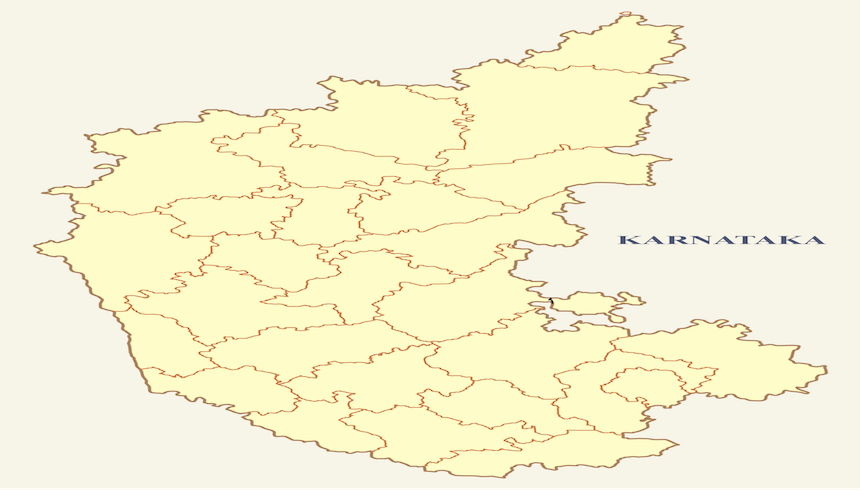It is important to know about the Lokayukta before we discuss about Anti-Corruption Bureau.
Lokayukta:
Karnataka was the first state that established the anti-corruption watchdog, the Lokayukta in 1984 under the Karnataka Lokayukta Act. The concept was borrowed from the model existing in Scandinavian block of countries that are considered as some of the least corrupt countries. In its term of 32 years, Lokayukta has been instrumental in bringing various cases of corruption to light and in bringing the guilty to justice. Justice Santosh Hegde who headed the Lokayukta during its most successful term had stated in an interview that ‘Lokayuktas and Lokpal were set up to create a mechanism of checks and balances within the system in keeping with the spirit of the Constitution. They were to function independent of the Government as a supplement to judiciary institutions.’
According to him, in 2008, the Lokayukta police laid 272 traps and 92 raids. In 2009, they laid 305 traps and conducted 52 raids in the process of which they caught IAS officers, IPS officers and a legislator. In spite of such a tremendous success, Santosh Hegde wanted the Lokayukta Act to be amended in order to have suo motu power to enquire against a public servant as this can only be done on written complaint under the Act at present. He was also against prior sanction of the Government for prosecution of the public servant under Section 19 of the Prevention of Corruption Act as this allows the government to shield the officers. Excerpt of the interview can be found HERE.
The faith that was built in the minds of the people towards the Lokayukta came tumbling down during the term of Y.Bhaskar Rao due to the alleged extortion racket involving his son. Despite the hullabaloo over his resignation, he shamelessly stuck to his seat choosing to hole up by taking a long leave. He finally resigned soon after the legislative assembly adopted a motion to remove him.
Anti-Corruption Bureau:
After a credibility crisis of this sort, while we all expected the Lokayukta to be strengthened, the Karnataka Government headed by Chief Minister, Siddaramaiah has decided to revive the Anti-Corruption Bureau on Monday to provide for ‘transparent and efficient administration.’ The bureau has been empowered with investigative roles. It will function under the Government’s guard. It will have 322 members drawn from the Police Department and headed by ADGP rank police officer. One Inspector General of Police, ten Superintendents of Police, 35 Deputy-Superintendents of Police, 75 Police Inspectors and 200 constables form the rest in the hierarchy. The bureau will have a Vigilance Advisory Board headed by the Chief Secretary.
Justification for Anti-Corruption Bureau:
When aspersions were cast on the establishment of the Bureau, the Government justified its decision by citing court judgments. The Government said that Karnataka Lokayukta Act only allows Lokayukta to inquire into complaints against public servants but does not allow criminal investigation against them. Even though the state Government entrusted investigation powers to the police wing of Lokayukta, the Supreme Court in C.Rangaswamaiah v. Karnataka Lokayukta held in 1988 that police officers probing cases under Prevention of Corruption Act are autonomous.
It was held by the Karnataka High Court that according to this judgment of the Supreme Court, the police wing of the Lokayukta does not have the jurisdiction to supervise criminal investigations under the Prevention of Corruption Act. The Karnataka Government, therefore, proclaims that it decided to separate the two roles by reviving the Anti-Corruption Bureau.
Criticisms against Anti-Corruption Bureau:
However, the decision has been drawing flak for it looks like a definitive strategy to weaken Lokayukta. RTI Activist S.R.Hiremath, in fact stated that, “What was a glorious history of Karnataka, this chief minister is undoing with a dinky little order by misinterpreting the Supreme Court order. It is basically protecting the corrupt and allowing corruption to flourish.”
The justification to the move seems concocted in order to hobble any measure to investigate corruption within the Government. The passage of Lokayukta Bill that allowed for the removal of Lokayukta and Upa Lokayukta, the delay in appointing the new head of the Karnataka Lokayukta were all well thought out tactics to weaken the strongest anti-corruption system present in the State.
As Justice N.Santosh Hegde pointed out, why would Government decide to revive an agency that was scrapped out because it did not work well? Also, what sort of transparency can one expect when the agency works under the Cabinet Ministers? He said with this, the Government might as well close down Lokayukta as it will be nothing but a rehab post for judges.
Moreover, Senior Congress leader Janardhan Poojary also criticised Chief Minister’s move on March 16, 2016 stating that it was ‘against the law,’ as according to the Code of Criminal Procedure (CrPC ), chief minister, ministers, MLAs or any public servant can been booked and investigated. He said Lokayukta has been strengthened by former Lokayuktas like Justice Venkatachala and Justice Santosh Hegde due to their manner of work and there was no need to replace it with Anti-Corruption Bureau. In fact, Ram Jethmalani has also criticised the move. For an interesting read about his opinion on Anti-Corruption Bureau, read his blog post HERE.
Status of Anti-Corruption Bureau:
Having an anti-corruption agency that is to investigate in cases involving public servants work under the supervision of the Government renders the entire purpose null and avoid. We cannot have the public servants decide if the case should be investigated into or not and allow them to be one’s own judge. This is an indisputable move towards keeping cases of corruption under wrap. Now it remains to be seen if the State Government will get embroiled by the strife and decide not to revive Anti-Corruption Bureau or if it will stick to its ground and be successful in knocking down the powers of the Lokayukta making it almost ineffective.
On a positive note, the court came down on the Government after its receiving its submission on the formation of Anti-Corruption Bureau. It expressed disappointment stating that the attempt would paralyse the system by protecting corrupt officials. Find the relevant article HERE
Moreover, in a petition filed challenging the validity of the Anti-Corruption Bureau, the court ordered that cases being probed by the Lokayukta and pending sanction for prosecution should not be transferred to the Anti-Corruption Bureau. Also, any action initiated by Anti-Corruption Bureau would be subject to the result of a PIL filed before the court. The next date of hearing of the case pertaining to Anti-Corruption Bureau has been posted to 20th April. You could have a look at the relevant article HERE
‘Corruption is a true enemy to Development’ – Tsakhiagiin Elbegdorj
Picture Courtesy: Wikimedia







